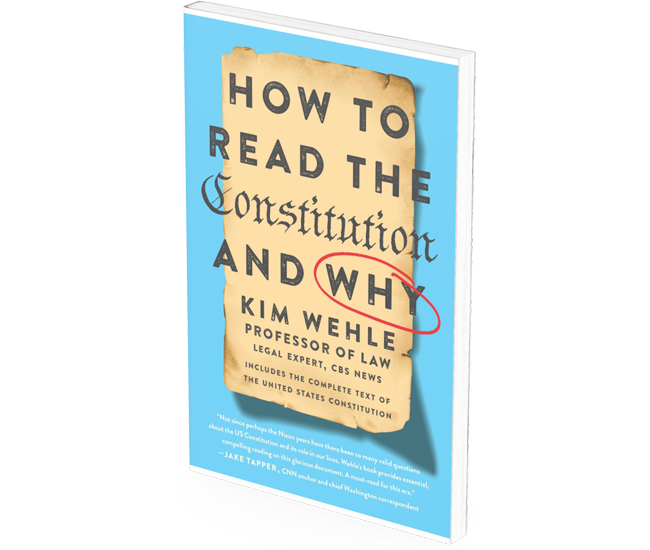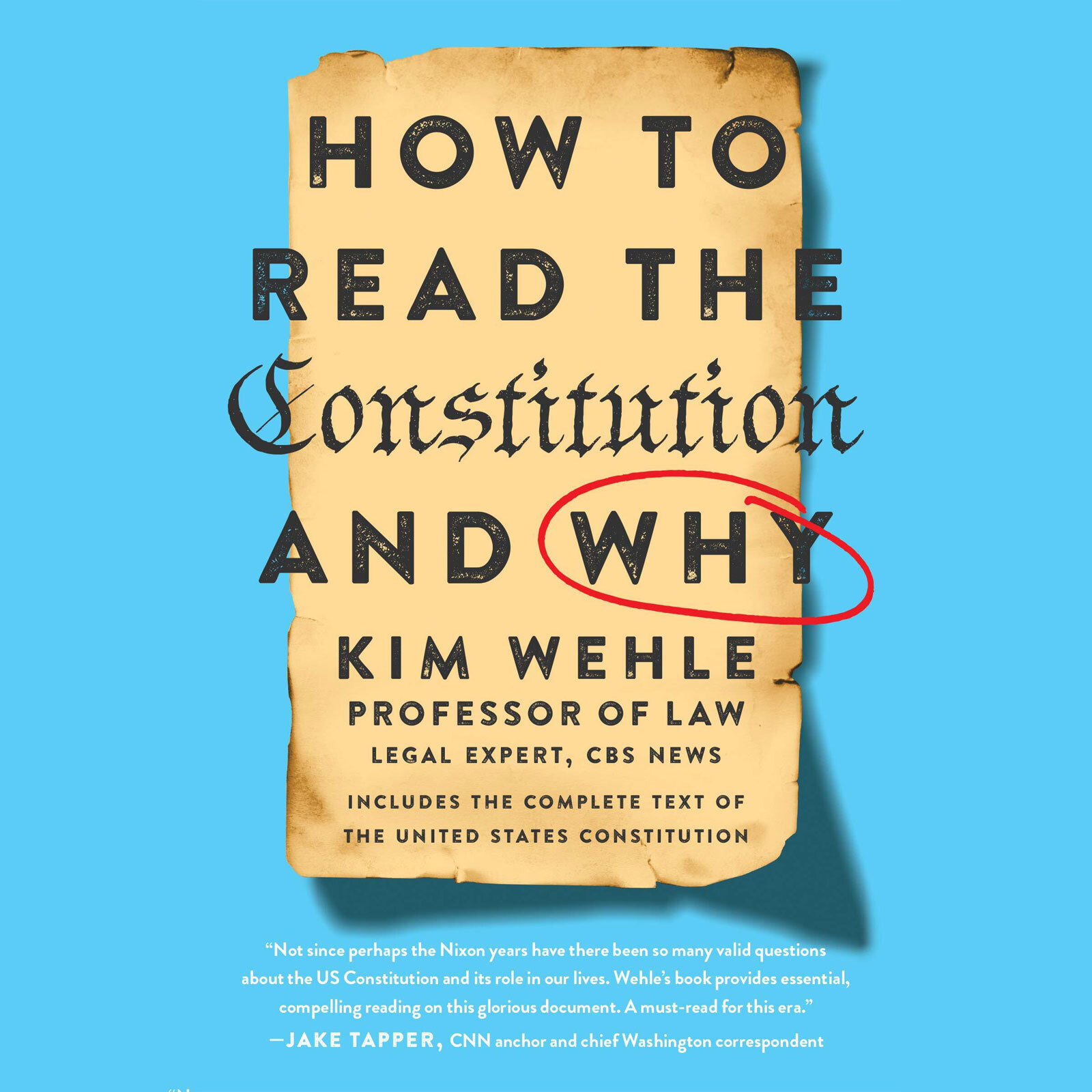“[An] accessible treatise… Wehle elegantly translates the Constitution into layperson-friendly terms.”
Publishers Weekly
“Not since perhaps the Nixon years have there been so many valid questions about the U.S. Constitution and its role in our lives – and so many perceived challenges to it. Kim Wehle’s How to Read the Constitution—and Why provides essential, compelling reading on this glorious document. A must-read for this era.”
Jake TapperCNN Anchor and Chief Washington Correspondent
“The oft-cited U.S. Constitution is a misunderstood document. In this engaging and informative analysis, CNN pundit Wehle (law, Univ. of Baltimore Sch. of Law) offers a detailed explanation for general readers. The author's approach is twofold: she describes the document's structure with the aid of useful analogies to business models ("The constitution does not put a single person in charge") and examines the list of rights we often take for granted. Wehle's succinct chapter on the Second Amendment is especially timely, as she asserts that a "strict reading" of the Constitution is a myth and that many words in its text are ambiguous. Phrases such as "separation of powers" and "checks and balances" do not appear in the Constitution, yet those principles are implied in the delineation of the powers granted to the three branches of government. Additionally, "American values" are not spelled out in the Constitution. The last section presents a discussion of why the Constitution matters and how it's basic concept of government is endangered. Sprinkled throughout are many examples from current politics, with President Donald Trump mentioned frequently. VERDICT People of all political persuasions will benefit from this book, especially with a battle looming between Congress and the president in the coming months.”
Thomas KarelFranklin & Marshall Coll. Lib., Library Journal



